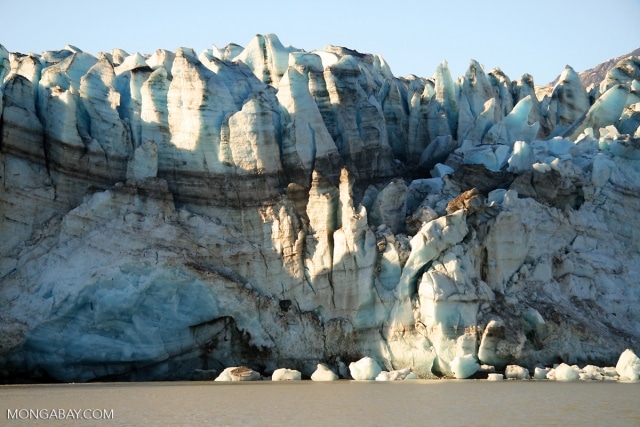Arctic sea ice reached its annual minimum on September 11 this year and scientists say it appears the accelerated pace of sea ice decline has continued into 2015.
According to researchers at NASA and the National Snow and Ice Data Center (NSIDC), the extent of Arctic sea ice shrank to 4.4 million square kilometers (1.7 million square miles) this summer, which ranks 2015 as having the fourth-lowest minimum extent since satellites were first used to observe sea ice coverage in 1979.
The ice melted at a relatively slow rate in June, the month when the Arctic typically receives the most sunlight, the scientists said. But ice loss accelerated again in July and above average rates continued through August, usually the month when the loss rate begins to taper off.
Minimum Arctic sea ice extent has been decreasing since the late 1970s in response to global warming, and has been accelerating since 1996, NASA says. The ten lowest minimum extents have all occurred in the past eleven years.
Image via NASA.
The sea ice cap was once a solid sheet of ice that grew and shrank with the seasons, but it’s become increasingly fragmented into smaller ice floes that are more exposed to the warmer water, which only serves to accelerate melting even further.
“Arctic ice cover becomes less and less resilient and it doesn’t take as much to melt it as it used to,” Walt Meier, a sea ice scientist with NASA, said in a statement. “In the past, Arctic sea ice was like a fortress. The ocean could only attack it from the sides. Now it’s like the invaders have tunneled in from underneath and the ice pack melts from within.”
This year, at the end of a hotter than average August, a big “hole” appeared in the ice pack in the Beaufort and Chukchi seas, allowing the ocean to absorb more of the sun’s energy and accelerating melting, the NASA and NSIDC scientists said. This year’s minimum sea ice extent of 1.8 million square kilometers (699,000 square miles) is lower than the 1981-2010 average.
Credit: National Snow and Ice Data Center
Environmentalists were quick to point out the irony of the Obama Administration allowing Shell to drill in the Arctic even while the region provides one of the clearest examples of how global warming is already impacting the planet.
“The sea ice minimum measurement is a devastating reminder of how fast we’re hurtling towards an unstoppable climate crisis,” Greenpeace USA’s Mary Nicol said in a statement. “Instead of using data like the sea ice minimum as a clear warning sign to take bold action, our leaders are allowing Shell to drill for oil in the melting Arctic ice.”
Minimum Arctic sea ice extent is probably not the only reason 2015 will go down in the record books. Climate scientists have said that 2015 is on pace to be the hottest ever recorded.
World Wildlife Fund’s Margaret Williams said in a statement that both records are further evidence of the urgent need to reduce global emissions from fossil fuels, adding, “Dwindling sea ice is a stark reminder of the destruction climate change wages on our most vulnerable wildlife and communities.”
This post originally appeared on Mongabay.com.
Image Credit: Rhett Butler / Mongabay.com
Subscribe to our newsletter
Stay up to date with DeSmog news and alerts









